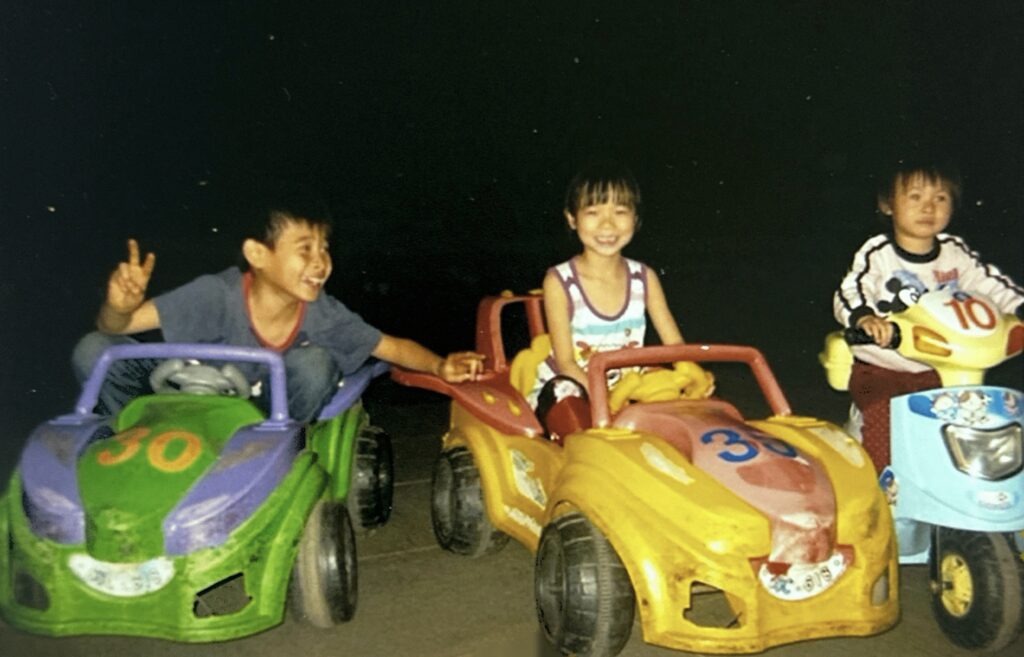When I look in the mirror, I see a daughter of Asian-American immigrants and a first-generation student. This is the ongoing story of my life, shaped by my family’s journey in a foreign land and my own relentless pathway to college.
My family moved to the United States in 2012. Although I have lived here for most of my life, I am still filled with bright memories of walking down streets decorated with fire lanterns and indulging in shāo kǎo, which are Chinese barbeque kabobs.

I miss living in China and I could imagine that it was difficult for my parents to make the decision to move to the United States and say goodbye to all of their family and friends they have known their whole lives, not knowing if there would be a chance to meet again.
I cling to my mother’s hand in the bustling airport near Kaiping. My nine-year-old brother is too old to hold hands, but I’m only three. My mother’s hand is sweaty and I wonder if everything is okay as she turns to me.
“Life will be better in the States, Mèimei,” she says.
My family of four moved from a spacious three-bedroom apartment in China into a scruffy, old room when we first settled down. I was unaware of my family’s relationship with money as a young child, but I noticed many hints. My parents had very demanding jobs that required them to work six days a week, in twelve hour shifts with few breaks in between in exchange for fifteen dollar hourly wages. My parents would complain about having to work every morning, but they had no choice but to stay in their jobs. I did not understand why my parents did not pack their bags and leave their jobs back then. The harsh reality for many immigrants like my parents is that they have limited career opportunities and are bound to their jobs until they retire.

People who came before my parents promised that America would welcome us with open arms and prosperity. But the country that my parents had envisioned instead broke all the promises that they were given and shattered their hopes and dreams of achieving a better life.
My parents’ decision to build a new life in the United States has influenced how I am designing the blueprint of my future. Throughout my childhood, I saw how my parents were unsatisfied with their jobs and did not have the opportunity to pursue the life that they envisioned. While my parents never pressured me to do anything, I still felt the weight of responsibility to make my parents proud and prove that their sacrifices were worth it. My parents had always regretted not attending college.
“I should have tried harder to study so I would have lived with more purpose,” said my mom.
I have always held my mom’s words close to me. I recognized higher education as a way for me to grant freedom to myself and my family. Eventually, I became obsessed with the idea of getting accepted into an elite college. In my freshman year of high school, I would study until 2 a.m. and cram my schedule with as many activities as humanly possible. It felt like every cell in my body’s purpose was to work.
Despite the hours I put into studying and my extracurriculars, I felt like I would never catch up to my peers in the marathon of high school. I always blamed myself for getting lower marks and achieving less than my peers, but it was not a fair comparison now that I am looking back on my journey. I live in the heart of Silicon Valley, where there is a concentration of wealth. Many of my peers have access to tutoring, college consulting services, and more extracurricular opportunities. Meanwhile, I have to juggle my responsibilities at home with my classes and activities with minimal support.
All these experiences reveal who I see in the mirror—a daughter of immigrants who carries the weight of their unfulfilled dreams and a determined first-generation student hoping to become the living proof of their American Dream.
